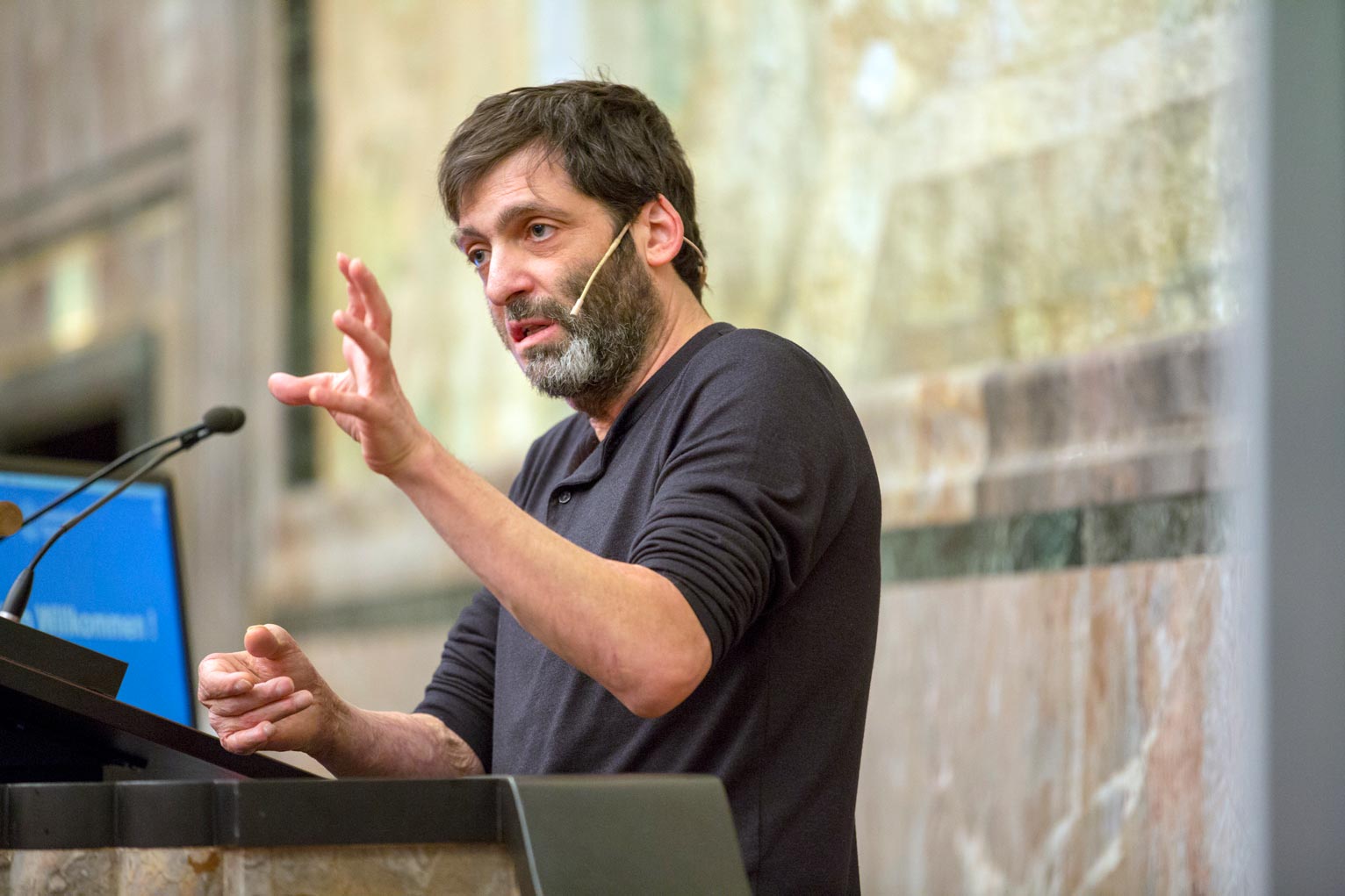Downloads
Article
Why are our financial decisions often irrational, leading to bad choices? Behavioral economist Dan Ariely answered this question in a very entertaining and thought- provoking way.
by Maura Wyler
Dan Ariely, the James B. Duke Professor of Psychology and Behavioral Economics at Duke University, came to Zurich to present his most recent book Dollars and Sense. He is a researcher, best-selling author, and an entrepreneur who wants more people to get excited about behavioral economics. He captivated the audience with his research findings and delved into the illogical world of personal finance and common misconceptions of money.
Why we misthink money
When it comes to money, we consider ourselves experts. Spending it every day, we think that we truly understand it. Using a few examples, Ariely illustrates that this is actually not the case. We misjudge money because of its omnipresent role in our society. When making financial decisions, a rational behavior would include analyzing the trade-off across time and products involved. For instance, if I spend $90,000 on a new car, what is the trade-off? What could I buy instead of the car, or should I save or invest. In reality, it is very hard to think about these trade-offs. Ariely then focused on two basic misconceptions of money, which lead to irrational financial decisions that cost us more than we think. First, there is the tendency to think about money in relative terms, for instance, when comparing different goods while ignoring the absolute price difference. Imagine that you are about to buy a $15 pen, but the cashier tells you that another store down the street is selling the same pen for $7, which would save you $8. Most people would save the money, explained Ariely. But you probably would not do the same with a more expensive item, he said. If you are in the market for a ski jacket that costs $1,015 and the cashier tells you the exact same item is $1,007 just three blocks away, you are more likely to stick with the pricier item, and this is illogical. Money is absolute. At the end of the day, you have eight dollars more or less, said Ariely.
The pain of paying
For the second misconception of money, Ariely asked the audience, what would hurt more, paying for dinner with cash or credit card? Many people experience actual pain when paying for something. This psychological concept is called “pain of paying” and has to do with humans being loss-averse. Credit card purchases are less painful because plastic is less tangible than cash. The loss of money is less visible and the payment is deferred. The same is true for new payment methods; think for example about the new “Amazon go” stores, explained Ariely: “We are taking the pain of paying away completely.” He asked if this is the direction we want to go as a society, particularly thinking about issues like energy consumption or private debt: it is hard enough to think about the involved trade-offs (as we experience today) but making payments invisible will make it even harder to make good decisions about money.
How to spend smarter
In his closing statement, Ariely recapped his opinion that money is about using it well to make ourselves happy. With his unusual lecture on such a common subject, he left the audience with a lot to reflect on. Many attendees will probably think twice before using plastic money the next time.
Why are our financial decisions often irrational, leading to bad choices? Behavioral economist Dan Ariely answered this question in a very entertaining and thought- provoking way.
by Maura Wyler
Dan Ariely, the James B. Duke Professor of Psychology and Behavioral Economics at Duke University, came to Zurich to present his most recent book Dollars and Sense. He is a researcher, best-selling author, and an entrepreneur who wants more people to get excited about behavioral economics. He captivated the audience with his research findings and delved into the illogical world of personal finance and common misconceptions of money.


